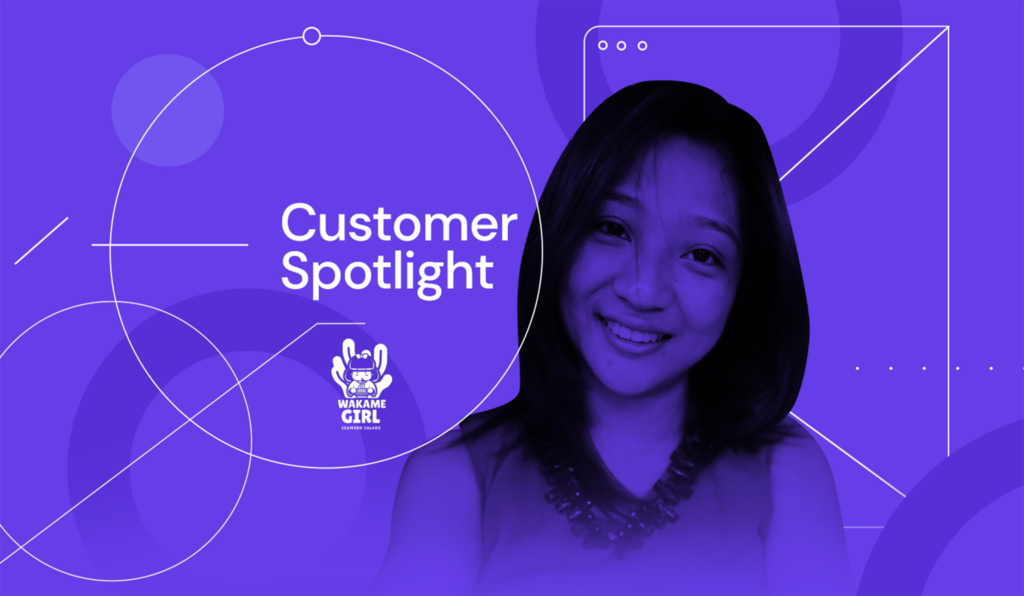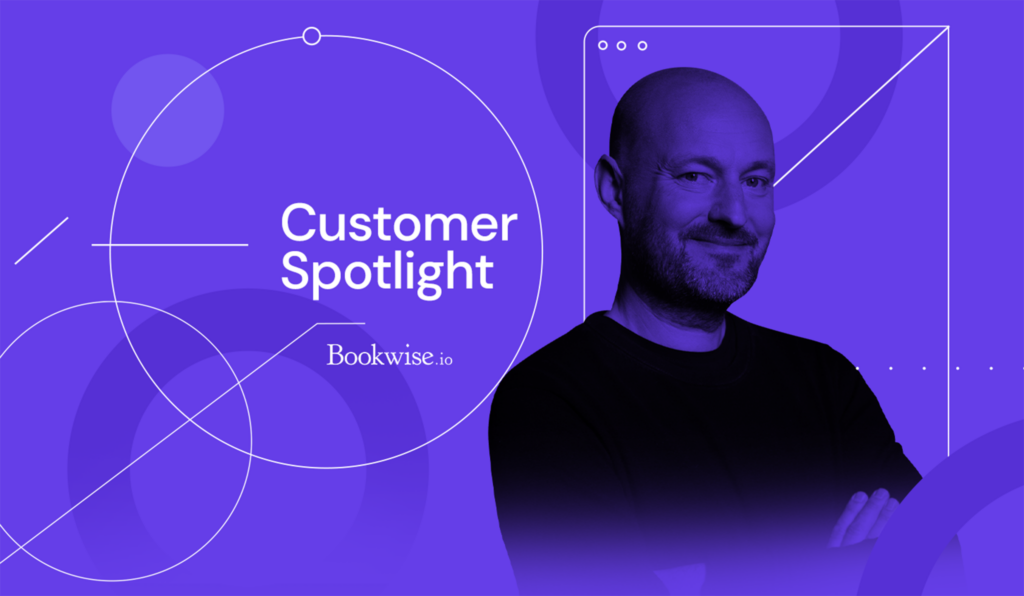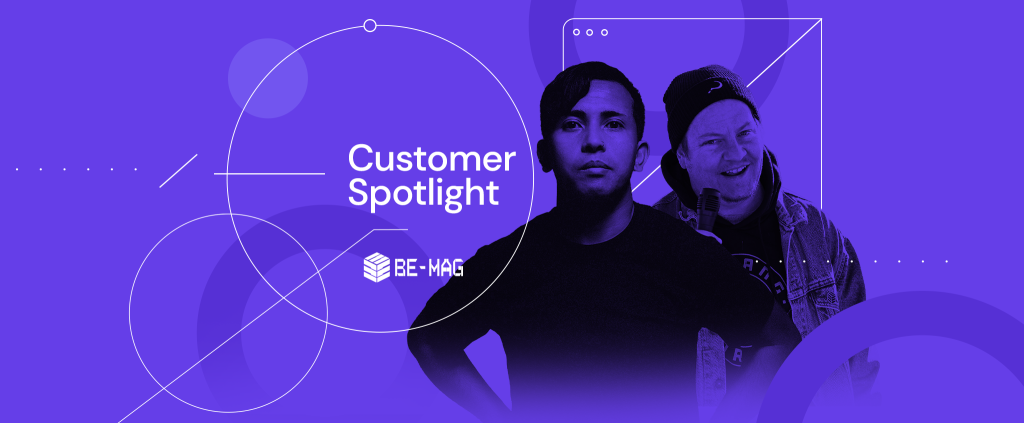Nomad Home: Selling Decor Through Storytelling
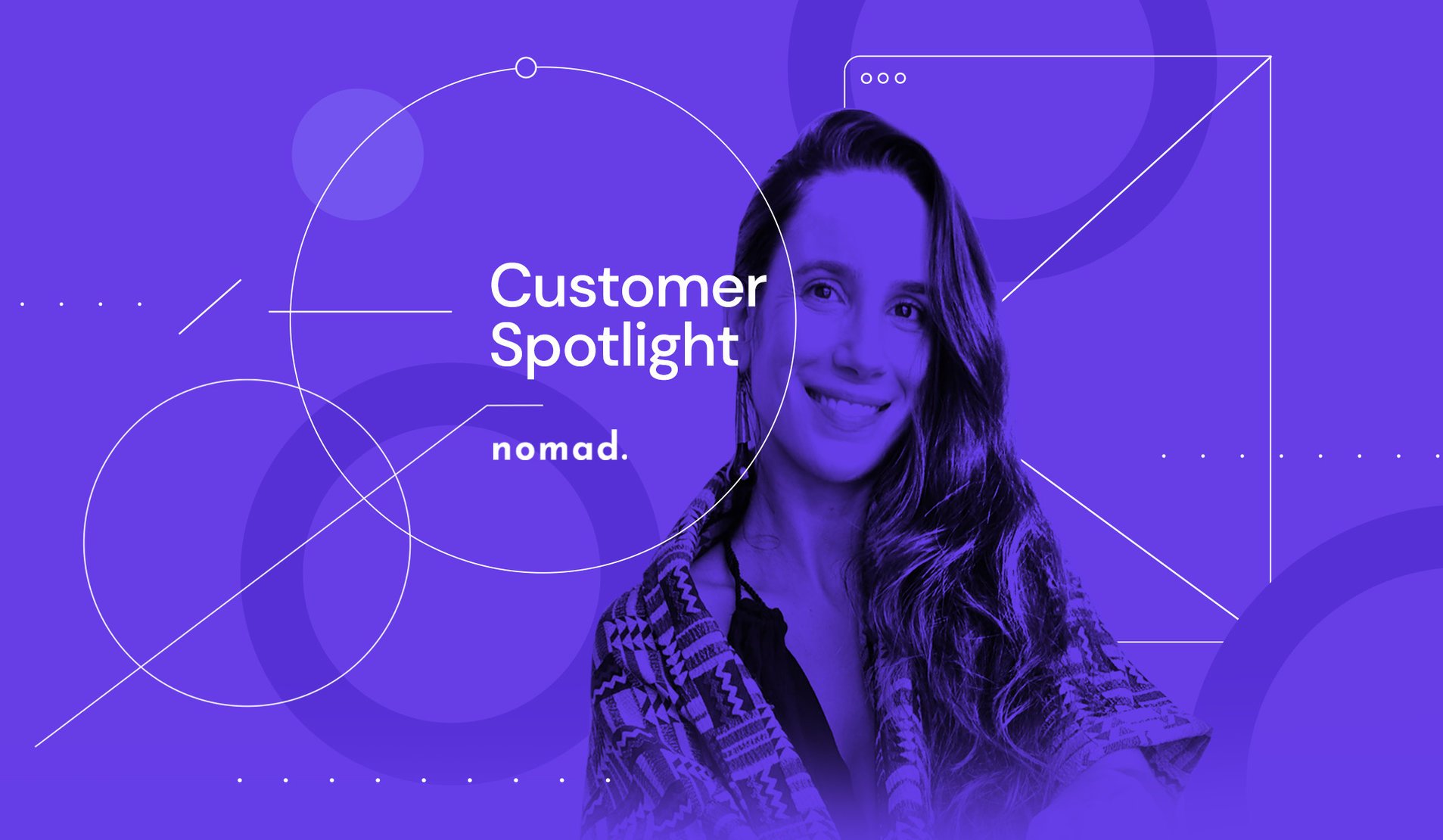
While the practical ins and outs of creating a business is an exciting topic by itself, some companies go beyond that and add a creative, playful touch to their narrative, making us see the business world in an entirely different way.
That’s how we felt interviewing Nomad Home, a Brazilian eCommerce company focused on selling handmade, custom decor pieces. Nomad Home’s trajectory in the market is just like its products: full of personality and passion for life.
In this article, we share why and how our client Juliana created her online business, Nomad Home, and how she uses storytelling to create value for her customers.
Tell us about your experience: where did your business idea come from?
We started our project during the pandemic. I used to work as an engineer specialized in Materials Science, and I noticed that clients wanted to find original, custom-made items for their homes.
I really like traveling, so I wanted to use this concept in my business as well – that’s where the name Nomad comes from. We combined the traveling motif with the idea of selling customized items mainly made out of straw, clay, and rattan. Each product is linked to a specific travel story that our clients can relate to.
How did this business idea develop into what Nomad Home is today?
I started building the business way before I made the products themselves. We created an Instagram account, grew our profile organically, and worked on the brand’s concept. And, because we managed to build brand awareness first, we had demand for our products from the very first day we launched our website.
We invited local designers for collaborations and partnered with artisans for our monthly ceramics collections. We always kept in mind what people were interested in and what our followers discussed on social media. Also, we made sure to publish content about each product, telling the story behind the pieces – where they came from, who created them, and the concepts that inspired them.
For example, we have many products made especially for coffee lovers. So we thought: why don’t we develop our own coffee brand? We went to the Carapaó region in Brazil and initiated the creation of a unique blend of coffee with an award-winning local farmer. We made sure to tell, in our blog, the complete story behind our travel to Carapaó and how we created our coffee brand. Because of that, many restaurants, cafés, and B&Bs started to contact us regarding our customized products.

When we first created Nomad Home, we could not even imagine that these businesses would be interested in our items. But, today, they already represent a significant part of our demand. When Nomad Home was six months old, I ended up bringing in a new business partner to help with our growing business – and we are happy with our trajectory so far.
The Challenges of Being an Entrepreneur
In most cases, having the idea is the easy part. It’s more challenging to know how to put that idea into practice, make it grow, create value for people, and get noticed online. When we look at Juliana’s example, we can see how she used content marketing and storytelling to engage her followers and master the more complicated elements of building an online business.
What were the biggest challenges you faced when building and managing your business?
We have two main challenges: creating value for our customers and catching people’s attention. Capturing people’s attention is especially hard on the internet because there is a lot of content competing with us. That’s why we put a lot of effort into creating content pieces totally connected to our concept and that we ourselves find interesting. It’s a lot of work, but it’s definitely worth it.
Another challenge we have is growing our sales. It takes a lot of work and patience – willing to see overnight results does not help here.
What was your proudest moment managing the business?
I think our first Black Friday was pretty cool. We didn’t even know what to expect from the event, so we tried to organize our content production around it and ended up generating a lot of sales. It was an exciting experience.
Releasing our coffee brand was very nice as well. It sold out in less than 24 hours. And, when we put out our ceramics, they were also sold out in less than 2 hours. It was pretty cool!
When did you create your website? Did you do it all by yourself, or did you get any help? Did you have experience in website development?
My boyfriend is a web designer and developed my website. He uses Hostinger web hosting in his other projects and always mentions how easy it is to set up and access the email.
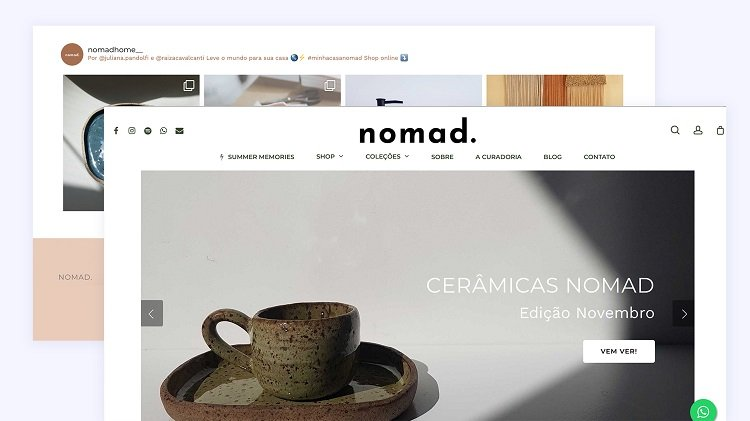
Did your website help you achieve your business goals? How so?
Yes, it did help. The internet makes it possible for a business to reach thousands of people. If you manage to create a strong narrative on social media, a website can help you sell to people living in places of the country you didn’t even know existed.
It’s impossible to do this offline in a brick-and-mortar store. Only online I could reach people in every corner of the country.
Apart from that, having a website is essential to level up and create a truly professional business. With a website, people will find your contact information quickly, deem you more trustworthy, and trust your business enough to make a purchase.
Building a Business That Serves Its Community
By putting the work of small artisans and local communities under the spotlight, Nomad Home managed to create an even more valuable story behind each product. Each item is unique and has its own story, which acts like its DNA.
How does your business contribute to your community?
From the very beginning, our idea was to show appreciation for small business owners and local artisans. Our customers know that the items they buy are exclusive.
People are now looking for handmade products that have a story behind them. They can say “this item was made by this person” because our products have a story and a signature.
What do you love about your business?
I love telling the story behind each product and making people feel that they can take a piece of the world with them. We always bring something to our customers from our travel destinations. They can have a piece of Brazil, Morocco, or Indonesia in their homes – and that is the concept we want to showcase.
For example, one of our customers tagged us in a photo of their family dinner table set with our latest ceramics collection. I love being part of these special moments in other people’s lives.
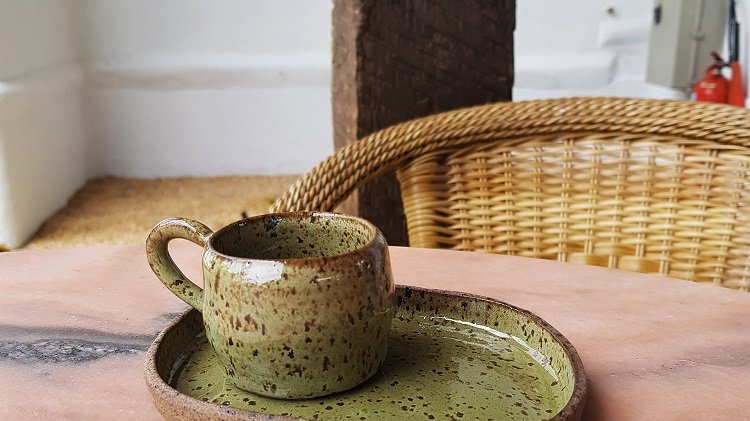
What kind of relationship do you have with your customers?
I feel that we are getting closer to our customers. We have some incredibly loyal customers, and we have monthly curated collections to share with them. So there’s always something fresh to keep them interested in what’s to come.
We noticed that our clients already expect to co-create pieces with us. For example, ceramic items are made according to what our public wants to buy. We ask them what they want, generating engagement on social media and tightening our relationship with our followers.
I will give two examples of how these relationships we foster are essential to our clients. When we were selling white linen tablecloths, we made sure to tell the entire story behind the creation of those pieces.
A particular client watched the promotional video and contacted us to share her deep and immediate connection with the item. Awakening these kinds of feelings in other people feels fantastic.
On another occasion, a client purchased various antique vases. Her guests started asking about the pieces, and she could tell the entire story of each one of them because she had read our content pieces about our travels. As you can see, we provide more than just products – we create a real connection with our customers.
Creating a Story Your Customers Can Recognize
Is there something more rewarding than when your customers know by heart the entire story behind your product? That shows how engaged they are, and knowing how much they cherish what they bought really makes us happy.
What are the plans for your business?
We already have some international trips scheduled for next year. We will bring some products and collaborate with the manufacturers to keep them in stock. Our goal is to expand our community. We will probably start designing furniture and grow our product catalog.
If you could go back in time, would you change something about your business?
It took me a long time to start using paid traffic because I did not know how well it worked. It works best if you have a content marketing strategy, so it was very interesting for us.
Another important thing is to be patient. It can be easy to think that the clients will magically find your store if you launch a website, but online selling takes a lot of work. You need to create demand for your products.
However, the beginning is the most complicated part of the journey. After that, everything seems to fall into place, and it gets easier.
What would you say to someone who has a business idea but is afraid to start?
My advice to someone planning to start an online business is to have a website from day one to give their business credibility and legitimacy. You can’t do online business if you do not have a website.
I also suggest telling your customers the stories behind each item. People are naturally interested in stories and, since customers can’t touch the products beforehand, they need the inspiration to help them get the feeling behind the piece and perceive its value.
Another crucial thing is to have good-quality photos, which gives you extra credibility and increases sales. And of course, I would tell them not to give up and to take their time, because that’s how all businesses work!
This article is part of the Customer Spotlight series. We seek to tell real stories and inspire our readers to put their own business ideas into practice. After all, Hostinger’s mission is to empower millions of people worldwide to use the internet to learn, create, and grow.
Have you used Hostinger to share ideas with the world? We’d love the opportunity to hear your story and amplify your journey. Don’t hesitate to reach out at spotlight@hostinger.com.

